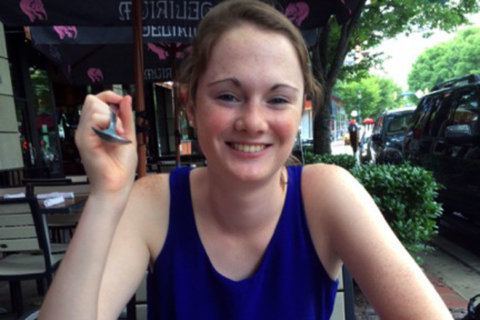FAIRFAX, Va. (AP) — Jesse Matthew’s attempted murder trial began with an emotional account from a woman who suffered a brutal sexual assault a decade ago. Now prosecutors will turn their attention to proving that Matthew was the man who attacked her.
Prosecutors have indicated that DNA evidence will be a big part of their case against Matthew, 33, of Charlottesville, who is charged with attempted capital murder, abduction and sexual assault in the Fairfax case. The DNA hit came after Matthew was identified as a suspect in the high-profile disappearance and death last year of University of Virginia student Hannah Graham.
The trial began Monday with testimony from the victim, who flew back from India to give her account of the September 2005 attack.
She testified in detail about the assault, but never explicitly identified Matthew as her attacker.
Prosecutors had indicated before trial that they might not ask the woman, who is not being identified by The Associated Press, to point out her attacker in court. And defense lawyers had questioned in pretrial hearings whether she could do so reliably, given the passage of time and the pretrial publicity that frequently broadcast Matthew’s face in connection with the Hannah Graham case, which drew international headlines.
Prosecutors, though, say that DNA evidence will tie Matthew to the crime. Commonwealth’s Attorney Ray Morrogh said the woman’s efforts to fight off her attacker yielded the key piece of evidence — DNA belonging to Matthew found under her fingernail, where she scratched him during the attack.
Detectives who collected the DNA evidence and scientists who conducted the analysis are scheduled to testify in coming days.
But public defender Robert Frank, another of Matthew’s lawyers, urged jurors to be cautious in evaluating DNA evidence. Frank said DNA can be transferred inadvertently by coming in contact with common objects.
“There is a possibility that DNA came … from innocent contact,” Frank said.
Monday’s testimony, though, centered on the victim, who told the jury that she had walked from her Fairfax townhome to a nearby bookstore and lost track of time while she was reading, not realizing night had approached. She stopped at an adjacent supermarket to pick up a few items and started walking back home.
As she returned, she said a stranger approached her and asked her a confused question about directions. She politely tried to answer, and walked away, saying the man’s demeanor left her unnerved.
A few steps from her door, she said, her attacker grabbed her and scooped her up from behind. He dragged her back to some nearby woods.
“He banged my head on the grass, on the ground. I was trying to push him away. I was punching him. He choked me,” the woman said. “He said, ‘If you scream again, I will twist your neck. If you let me do this, I will let you go.”
At some point, she said, she lost consciousness as she was being choked.
She said the attack ended when Matthew dragged her to another location and ran off, right around the time a bystander was approaching,
“She looked like she was nearly dead,” said the man who intervened, Mark Castro. “She was walking toward me, slowly. … She had a lot of blood on her. She was in bad shape.”
In cross-examination, defense lawyer Dawn Butorac questioned why the woman had not told police earlier that her attacker had tried to rape her, which she disclosed to prosecutors only on Friday.
The woman replied that “it was the most shocking thing and I couldn’t come to take it as a reality.”
Matthew faces up to life in prison if convicted.
The Hannah Graham case will be tried separately in Albemarle County at a date to be determined. Prosecutors there are seeking the death penalty.
Copyright © 2026 The Associated Press. All rights reserved. This material may not be published, broadcast, written or redistributed.





